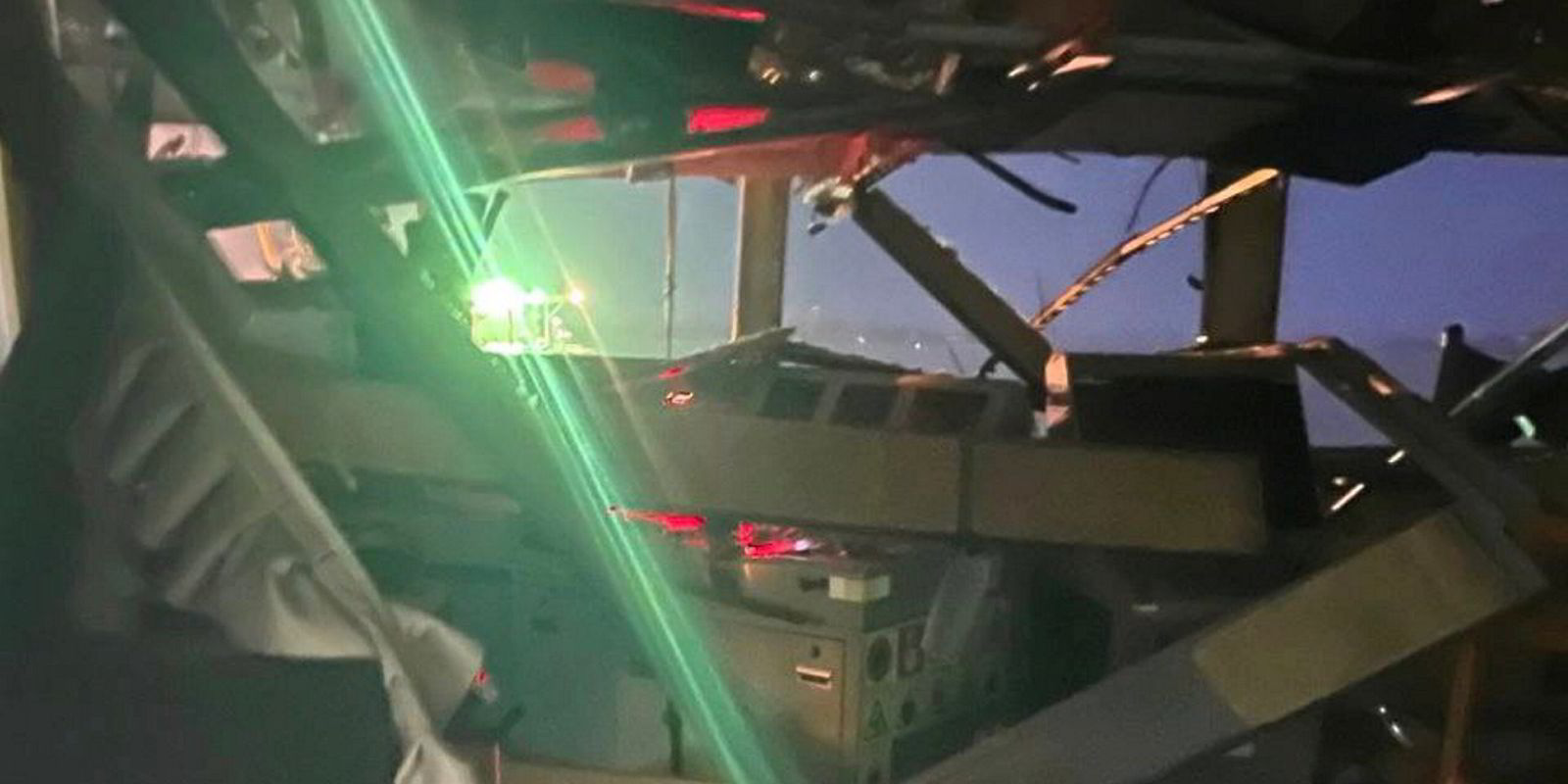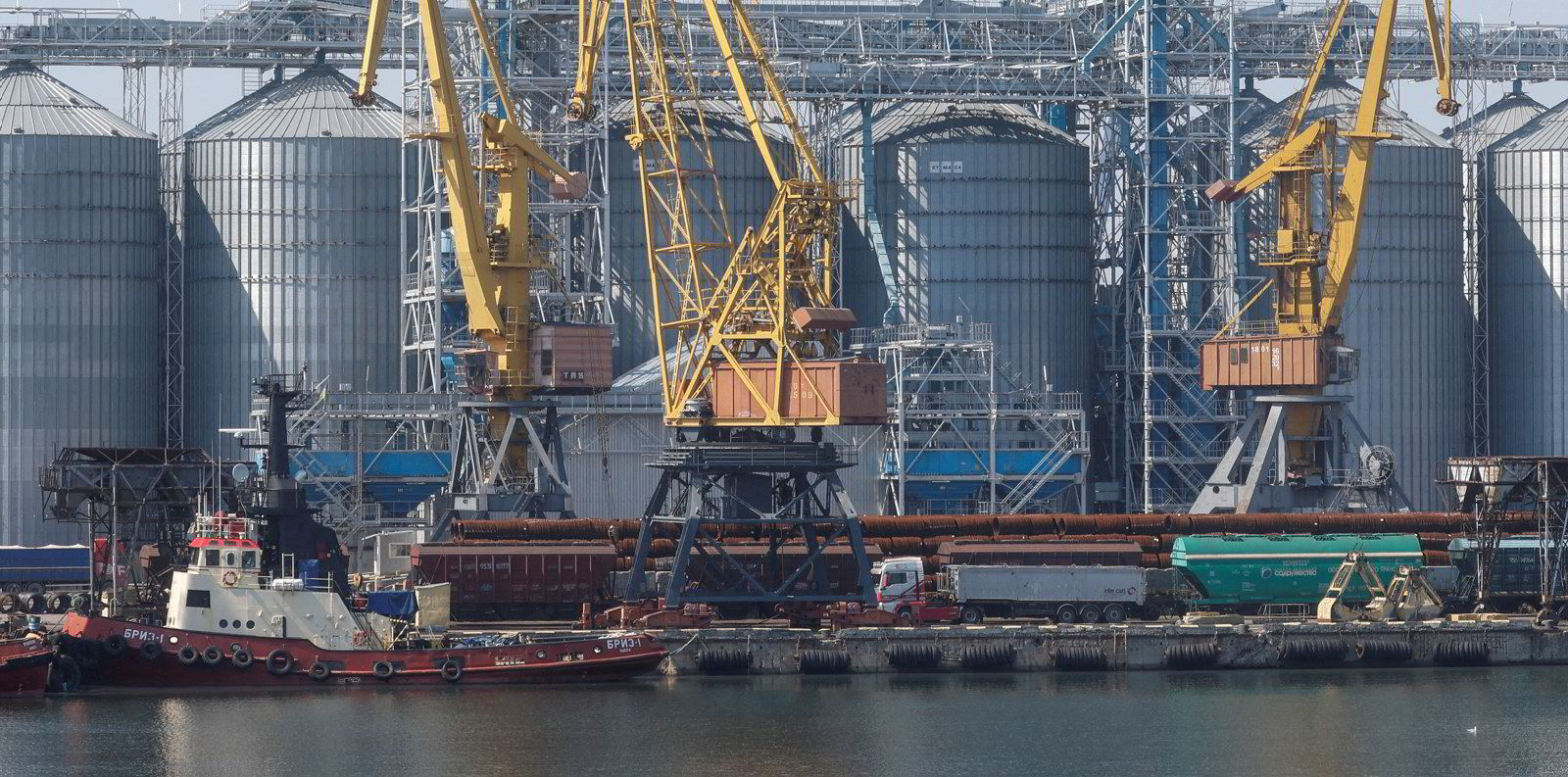Dramatic footage appeared on instant messaging service Telegram of Wednesday’s strike by a Russian missile on a post-panamax bulker that left its pilot dead and three crew members injured.
The footage, apparently from a neighbouring vessel, bears a 4.38pm local time stamp (1438 GMT) and confirms the damaged vessel’s identity as the 91,900-dwt Kmax Ruler (built 2009).
It shows an explosion hitting the bridge, in line with statements on Wednesday by the Ukrainian military about a rocket “hitting the superstructure of [a] civilian vessel”.
The footage also conforms to several photos distributed by the military and already published by TradeWinds depicting the devastated interior of a vessel’s bridge.
It is unclear from the footage if the Kmax Ruler was laden.
Ukraine’s vice prime minister, Oleksandr Kubrakov, had stated on Wednesday that the vessel, which he did not identify, was carrying a cargo of iron.
Its registered owner is Philippines-based Venus Mare SA, a company which the S&P Global database links to Cyprus-based Initial Marine, which market sources in turn are linking to Cypriot owner Andreas Hadjiyiannis.
Sources close to the vessel’s management said that the three Filipino crew members have not been seriously injured.
The Kmax Ruler is listed with the UK P&I Club.
Experts interviewed by Ukrainian website Dumskaya said that the Russian rocket may have been drawn by the vessel’s operating radio.
The corridor must go on
The impact that the attack will have on Ukraine’s renascent seaborne trade out of the previously blocked ports of Odesa, Yuzhnyy/Pivdennyi and Chornomorsk is still unclear.
“We’re still trying to figure out how things will play out,” one observer told TradeWinds.
Ukraine, however, rushed to assure the shipping community that its seaborne trade is not interrupted.
“Vessel traffic continues… despite Russia’s systematic attacks on port infrastructure,” Kubrakov said, adding that six vessels have left the three ports and five more were approaching on Thursday.
Kubrakov, however, reiterated a call for more Western help to provide air cover for Ukraine’s ports.
“Ukraine is doing everything to strengthen its air defence and protect the south of Ukraine from Russian terrorist attacks — we are grateful to all our partners who help protect our skies,” he tweeted on X.
“The world has already realised that there are no principles of international war for this aggressor,” he added.
The incident happened during a Russian missile attack on the Odesa port infrastructure. Such strikes are commonplace since Moscow got out of a United Nations-led safety corridor for the seaborne export of Ukrainian grain in July.
According to Kubrakov, this was the 21st such targeted attack by Russia after it left the UN-led agreement. The Ukrainian foreign ministry separately tweeted on Thursday that 300,000 tonnes of Ukrainian grain had been destroyed in the strikes carried out by drones and missiles.
Moscow has said it is targeting port infrastructure and fuel facilities used to attack Russian naval forces in the Crimea peninsula, which has been occupied since 2014.
Trouble coming at the IMO?
Despite these obstacles, Ukraine has managed to set up a new, alternative corridor since August, protected by its own arms. According to the latest figures released by Kubrakov on Thursday, 91 laden vessels have already left Ukraine under the scheme in 116 port calls to carry 3.3m tonnes of agricultural and metal products.
Premium freight rates have been attracting all kinds of bulkers, from small cargo ships to capesizes, with an average size of about 44,000 dwt.
The attack on Wednesday, however, also vindicates owners who had expressed reservations about the trade.
Market sources discussing the events speculated that anxious crews may increase pressure on owners not to send their vessels to the area.
Masters may also insist on their right to refuse to enter a port they consider particularly risky, especially if they are on inbound, ballasting vessels.
War risk rates, currently quoted between 2% and 3% of ship values, may increase.
On a political level, Wednesday’s attack may help Ukraine in its struggle to boycott a Russian bid to rejoin the International Maritime Organization’s (IMO) executive body. A vote on the matter is due in December.
The United Nations, of which the IMO is an affiliate organisation, already condemned the Russian strike.
“I share my condolences with the family of the killed port pilot and hope for the recovery of the injured,” said Denise Brown, UN humanitarian coordinator for Ukraine in a statement in which she criticised the “brutal and relentless pattern of Russian attacks on port facilities”.
“International humanitarian law strictly prohibits attacks on civilian infrastructure,” Brown added.




